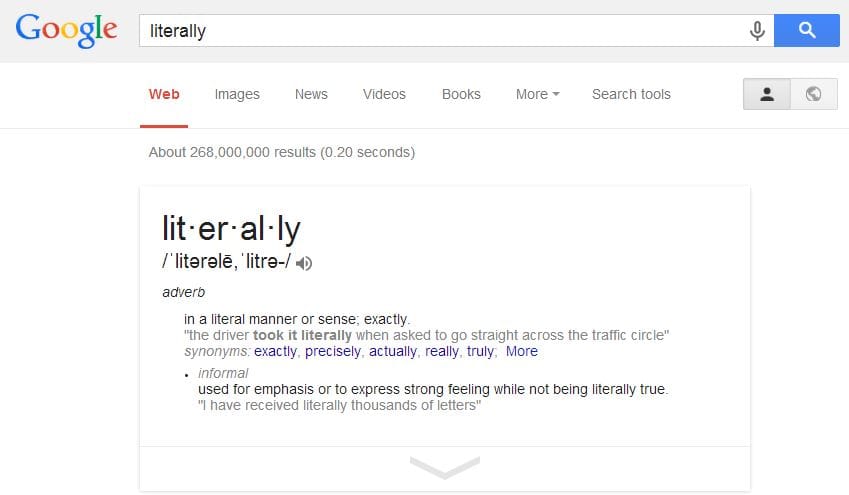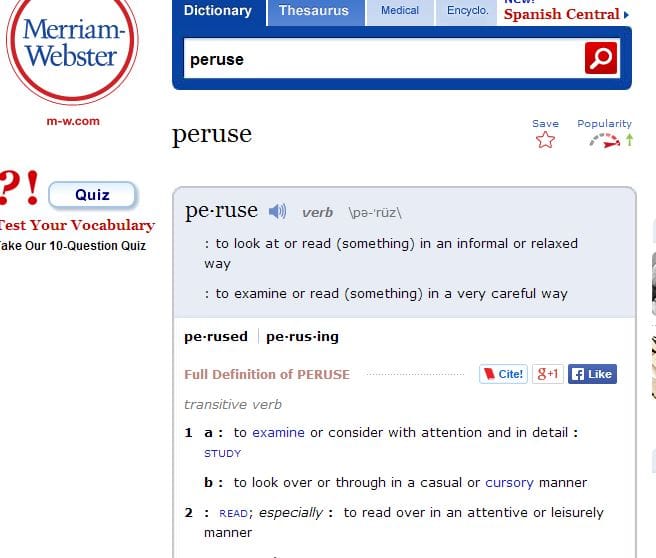Different Approaches to Grammar
Posted by Brainspring on 20th Aug 2014
Hi everyone,
Someone shared an article over Facebook recently about how the meaning of the word “literally” has changed to also mean “not literally”. I literally just Googled it and this is what I found:
Some people have posted outraged responses to this change, while others have been accepting. This is nothing new when it comes to language though. There are very few aspects of English that are universally viewed as right or wrong. Most of the time, it depends on what view of language people hold and what their purpose is.
Prescriptive and Descriptive Grammars
There are two different approaches to talking about language called prescriptive grammar and descriptive grammar.
Prescriptive grammar is focused on how language should be used. Descriptive grammar, on the other hand, focuses on how language is used. Think of prescriptive grammar like a prescription from the doctor. Prescription medication comes with directions about how and when to take it, what it is used for, and what you shouldn’t do while taking it. Likewise, prescriptive grammar gives directions for how you should speak, what language to use and avoid, and rules for how not to use language. The goal is to define a particular “proper” way of using language.
Descriptive grammar is the approach many linguistic scholars and dictionaries take towards language. This approach focuses on the way native speakers use language and tries to theorize about the underlying mental grammar framework that produces it. The goal is to answer questions about what a language is like, what forms it has and how it is used in different circumstances.
To Boldly Go… or To Go Boldly…?
Both prescriptive and descriptive grammars agree on certain fundamentals, like in the English language adjectives precede nouns. On most aspects of language though, there are varying views. For example, a prescriptive grammar may argue that “To boldly go…” is not a grammatical phrase because it breaks the prescriptive rule, “Do not split infinitives.” A descriptive grammar, however, would say that “To boldly go…” is a perfectly grammatical phrase because a native speaker of English would naturally produce such a phrase and it would be clearly understood by other native speakers.
Here are a few articles if you’re interested in reading more. The PBS one is especially good.
http://www.pbs.org/speak/speech/correct/prescriptivism/
http://emedia.leeward.hawaii.edu/hurley/Ling102web/mod1_popideas/mod1.8_descvsprescrip.htm
There is literally no right or wrong way to look at language. Language is literally always changing and evolving because it is in constant use by living people and adapting to new situations. Language change is nothing new. I remember struggling sometimes to read Shakespeare because I found the language confusing at times, even though it was English! While some usages of language may literally make your head want to explode, language is literally being changed as long as it is in use.
Bonus Funny Definition
Literally is not the first word to end up with seemingly contradictory meanings. Look at the definition of “peruse”!


